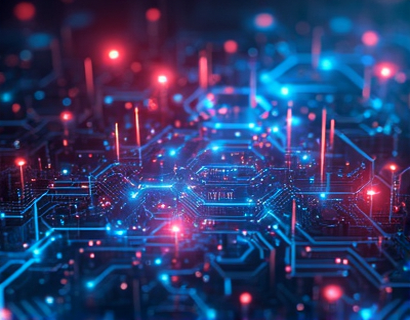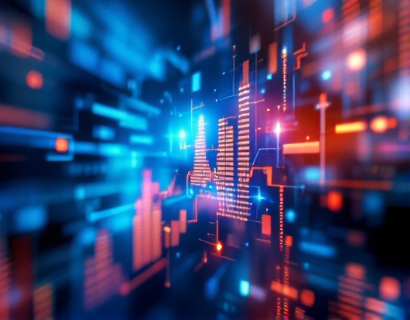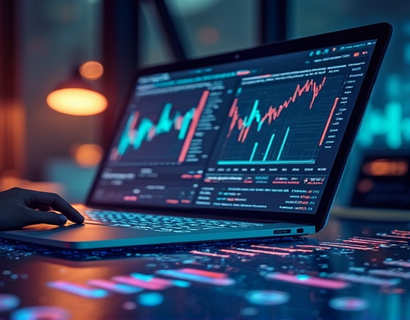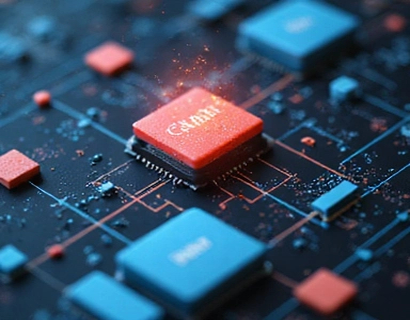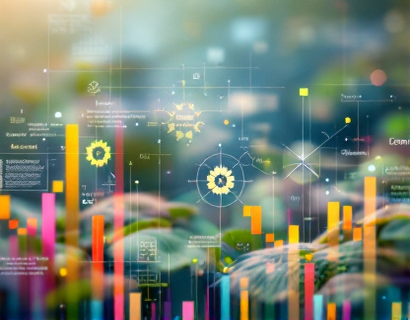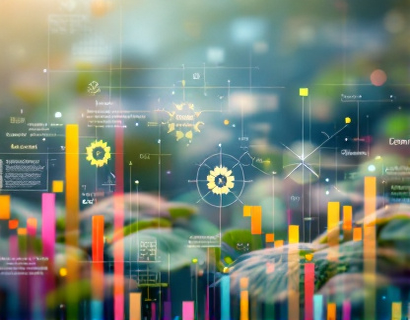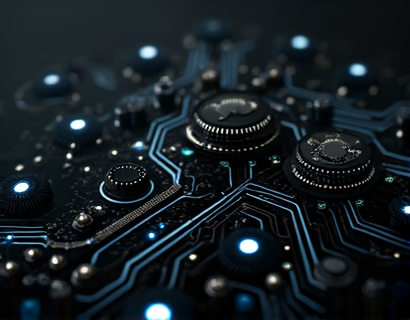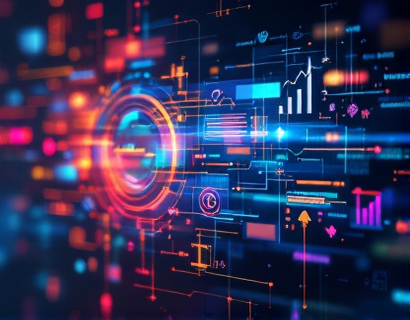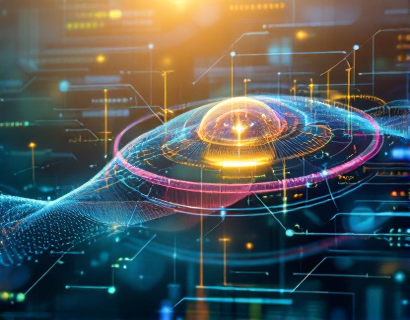Crypto and AI: Empowering Next-Gen Digital Transformation for Enhanced User Experiences
The intersection of cryptocurrency and artificial intelligence represents a pivotal frontier in the tech industry, promising to revolutionize digital experiences through the synergy of advanced algorithms and blockchain technology. This convergence is not merely a technological curiosity but a transformative force that is reshaping how we interact with digital services and applications. As tech enthusiasts and early adopters, understanding this synergy is crucial for navigating the future of digital innovation.
The integration of AI into cryptocurrency ecosystems brings about a new era of smart, adaptive, and secure financial systems. AI algorithms can analyze vast amounts of data to predict market trends, optimize trading strategies, and enhance security measures. This fusion not only improves the efficiency and reliability of crypto transactions but also opens up new possibilities for user engagement and personalized services.
Enhanced Security Through AI
One of the most significant benefits of combining AI with cryptocurrency is the enhancement of security protocols. Traditional cryptographic methods, while robust, are not immune to evolving cyber threats. AI-driven security solutions can detect and respond to anomalies in real-time, providing a dynamic defense against potential breaches. Machine learning models can identify patterns indicative of fraudulent activities, enabling proactive measures to safeguard user assets.
For instance, AI can be employed to monitor blockchain transactions for unusual behavior, such as sudden large transfers or repeated failed login attempts. By analyzing these patterns, AI systems can flag potential threats and initiate security protocols to mitigate risks. This level of vigilance is essential in a landscape where cybercrime is increasingly sophisticated.
Smart Contracts and AI Optimization
Smart contracts, self-executing contracts with the terms directly written into code, are a cornerstone of blockchain technology. When combined with AI, these contracts can become even more powerful and versatile. AI can optimize the execution of smart contracts by analyzing real-time data and adjusting parameters dynamically. This ensures that contracts are executed efficiently and fairly, reducing the need for intermediaries and lowering transaction costs.
For example, in supply chain management, AI-enhanced smart contracts can automatically trigger payments when specific conditions are met, such as the delivery of goods. This not only speeds up processes but also increases transparency and trust among all parties involved. The integration of AI ensures that smart contracts adapt to changing circumstances, making them more resilient and effective.
Personalized User Experiences
The fusion of AI and cryptocurrency also paves the way for highly personalized user experiences. AI algorithms can analyze user behavior and preferences to tailor services and recommendations. In the context of crypto, this means that users can receive customized investment advice, portfolio management, and even personalized digital asset management solutions.
Imagine a platform that uses AI to analyze a user's trading history, risk tolerance, and market preferences to suggest optimal investment strategies. Such a service can provide users with actionable insights and automated trading bots that execute trades based on AI-driven recommendations. This level of personalization not only enhances user satisfaction but also increases the likelihood of successful investment outcomes.
Decentralized Finance (DeFi) and AI
Decentralized Finance, or DeFi, is an emerging sector that leverages blockchain technology to create financial systems without traditional intermediaries. AI plays a crucial role in enhancing DeFi platforms by improving risk assessment, fraud detection, and automated trading. AI models can analyze vast datasets to identify trends and predict market movements, enabling more informed decision-making.
For instance, AI can be used to develop predictive models for lending and borrowing platforms, assessing the creditworthiness of users and determining appropriate interest rates. This not only streamlines the lending process but also reduces the risk of default. Additionally, AI-driven risk management tools can monitor portfolio exposures and suggest diversification strategies to minimize potential losses.
Enhancing Cryptocurrency Wallets
Cryptocurrency wallets are the gateways to the digital currency world, and AI can significantly improve their functionality and security. AI-powered wallets can offer advanced features such as biometric authentication, behavioral analysis for anomaly detection, and real-time transaction alerts. These enhancements ensure that users have a secure and convenient way to manage their digital assets.
Biometric authentication, for example, uses AI to recognize and verify users based on unique biological traits such as fingerprints or facial recognition. This eliminates the need for passwords and PINs, reducing the risk of unauthorized access. Behavioral analysis can detect unusual activity patterns, such as a user suddenly accessing the wallet from an unfamiliar device, and trigger additional security measures.
Tokenization and AI-Driven Marketplaces
Tokenization, the process of converting assets into digital tokens on a blockchain, is another area where AI can add significant value. AI-driven marketplaces can facilitate the buying and selling of tokenized assets, from real estate to art and collectibles. These platforms use AI to match buyers and sellers based on preferences, price sensitivity, and other factors, creating a more efficient and user-friendly experience.
AI can also help in valuing tokenized assets by analyzing market data, historical trends, and other relevant factors. This ensures that prices are fair and reflective of current market conditions. For instance, an AI-powered marketplace for real estate tokens can provide users with real-time valuations and insights, making the investment process more transparent and accessible.
Challenges and Considerations
While the integration of AI and cryptocurrency offers numerous benefits, it also presents challenges that must be addressed. One of the primary concerns is the regulatory landscape. As both AI and cryptocurrency operate in relatively uncharted territories, regulatory frameworks are still evolving. Ensuring compliance with existing laws and advocating for clear regulations is essential for the sustainable growth of these technologies.
Another challenge is the technical complexity involved in developing and maintaining AI-driven crypto solutions. Developing robust AI models requires significant expertise and resources. Additionally, the interoperability between different blockchain platforms and AI systems needs to be addressed to create seamless user experiences.
Future Prospects
The future of crypto and AI is bright, with numerous opportunities for innovation and growth. As technology advances, we can expect to see more sophisticated AI algorithms that can handle even more complex tasks within cryptocurrency ecosystems. The development of quantum computing, for instance, could revolutionize how AI processes data, leading to faster and more accurate predictions and analyses.
Moreover, the rise of central bank digital currencies (CBDCs) and their potential integration with AI could redefine traditional financial systems. AI can help central banks design more efficient and inclusive monetary policies, while also enhancing the security and transparency of CBDCs.
In conclusion, the merging of cryptocurrency and AI represents a transformative force in the tech industry. By leveraging the strengths of both technologies, we can create more secure, efficient, and personalized digital experiences. As tech enthusiasts and early adopters, embracing this synergy is key to staying ahead in the rapidly evolving landscape of digital innovation.





